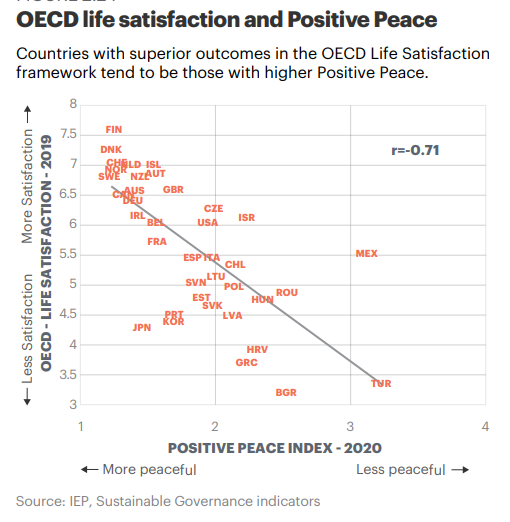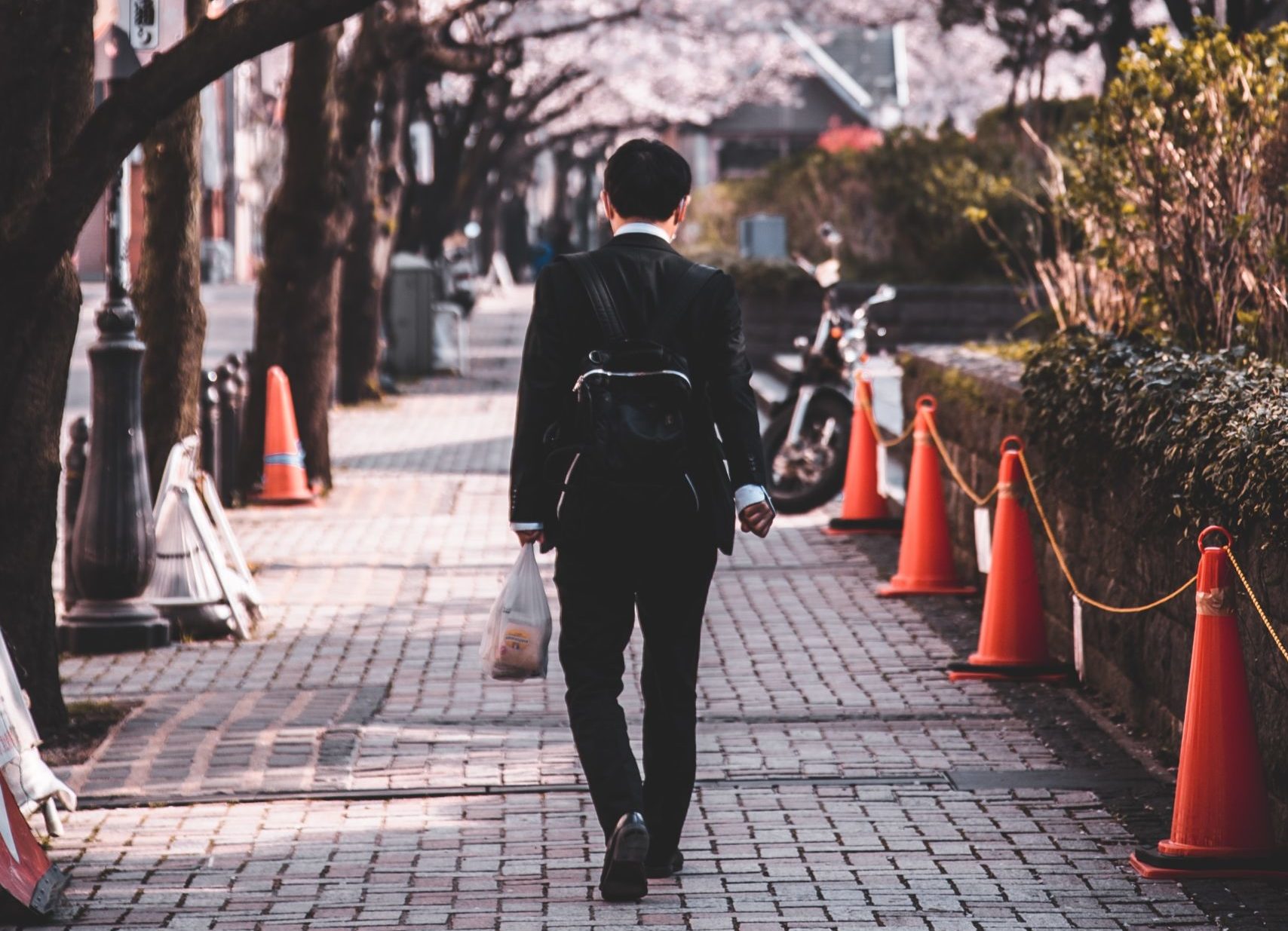Measures of life satisfaction see more satisfactory outcomes among high Positive Peace countries. Among OECD countries, life satisfaction correlates with the PPI with a non linear coefficient of 0.71 in absolute terms. Residents in OECD countries reported a level of satisfaction with life that is broadly proportional with these countries’ levels of Positive Peace.
One exception appears to be Japan, which has a comparatively low level of life satisfaction for the country’s high level of societal resilience. Japan has a Positive Peace Index score of 1.47 in 2020, broadly aligned with Ireland, France, Belgium and Germany. But the country has a level of satisfaction with life that is close to the bottom of the OECD range.

For cultural and historical reasons, the Japanese tend to report lower levels of satisfaction with life than other nationalities of comparable level of development.
Loneliness and isolation are widespread among the population, especially for men. Work and schooling pressures weigh heavily on the population and are partly to blame for the country’s relatively high suicide rates.
The Japanese culture imposes a heavy work and schooling burden on citizens, to the point that death by exhaustion or suicide linked to overwork has its own cultural designation: karoshi.
The World Health Organisation stated that there were 12.2 suicides per 100,000 people in Japan in 2019. This is a high rate in comparison to other similarly developed countries, although it is still lower than South Korea’s 21.2 suicides per 100,000 people.

There is also a relatively common practice whereby some Japanese recluses withdraw from society and do not leave their homes sometimes for many years. This practice is known as hikikomori, and a government survey estimated a total of 542,000 people – or 1.6% of the population – were living in these conditions.
Academics and experts believe the actual figures are much higher than official statistics show. Some sociologists attribute hikikomori to the high societal expectations for individuals to excel at work and school.
Download the Positive Peace Index 2022 report here.